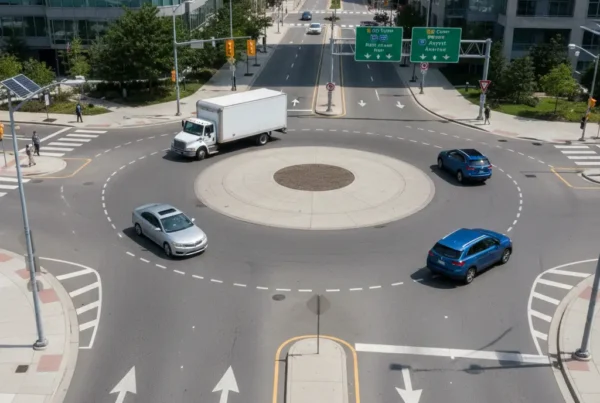Anything in this list is fair game for a road test, so be sure to prepare either with your parents or in driving lessons!
1. Vehicle Safety Check (Pre-Test)
-
The examiner will check your car for required equipment: brake lights, turn signals, horn, seat belts, windshield wipers, mirrors, etc.
-
You’ll need to demonstrate knowledge of basic controls (turn signals, windshield wipers, emergency brake, headlights).
2. Basic Skills / Parking Lot Maneuvers
These are done in the DDS testing area before going on the road:
-
Parallel parking (between two cones)
-
Backing up in a straight line for about 50 feet while looking back
-
Turning, stopping, starting smoothly
-
Three-point turn (turnabout) — making a U-turn using limited space
3. On-the-Road Driving
You’ll drive in traffic with the examiner, demonstrating safe habits like:
-
Obeying stop signs, traffic lights, and speed limits
-
Using turn signals properly
-
Yielding the right of way when required
-
Keeping proper lane position (not drifting)
-
Observing mirrors and surroundings frequently
-
Smooth lane changes and turns
-
Following at a safe distance
4. Critical Error Checks
Automatic failure can occur if you:
-
Run a red light or stop sign
-
Cause an accident or near-accident
-
Speed or break traffic laws
-
Refuse to follow examiner’s directions
-
Fail to yield to pedestrians or emergency vehicles
5. Scoring
-
You begin with a certain score (usually 100 points).
-
Points are deducted for mistakes (e.g., not signaling, rolling through a stop, hitting cones).
-
A passing score is typically 75 or higher.


